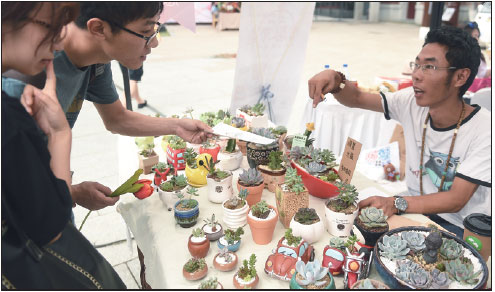Lack of originality sees creative markets stall
Updated: 2016-10-13 08:04
By China Daily(China Daily)
|
||||||||
|
A seller displays his potted plants at a stall during a creative fair in Changchun, Jilin province.Lin Hong / Xinhua |
Piracy and punishment
Wang, from cn-imart, said regulations and tougher punishments for counterfeiters are the only way to eradicate piracy and safeguard designers' rights, but a number of organizers say the designers are part of the problem.
"Many designers lack awareness of intellectual property protection," said Zhang Lei, CEO of Nautilus Fair, one of China's biggest creative fair organizers. "Most of them only begin to look at the law once a problem has surfaced."
Yan Shengxue, a professor from the School of Fine Arts at Central China Normal University in Wuhan, capital of Hubei province, said the long production and promotion processes are exacerbating the problem because they allow counterfeiters time to produce their copies.
To tackle the problem, some organizers have adopted a proactive approach. "We evaluate the items before they go on sale. Most of us are experts, and we are usually able to determine whether an artifact has been pirated, based on the maker's style and qualifications," said Xiao Xu, organizer of iMart Pingyao Ancient City, a fair held in the UNESCO heritage site of Pingyao Ancient City in Shanxi province.
"We hold design competitions and invite experts to select the best items, the ones that show true originality," he added.
Stricter selection protocols have been introduced at many fairs, and organizers carefully assess the qualifications of potential participants before issuing entry passes. Moreover, so-called hitchhikers - designers who fail to make the cut, but illicitly share booths with friends who have passed the selection criteria - have been banned because they often sell unauthorized merchandise.
"We can't condone this type of behavior, so we fine the registered designer they hitchhiked with," Zhang Lei said.
Legal support to combat piracy has also been updated. "We are negotiating with legal firms about cooperation to better protect intellectual property rights," he added. "Designers need to raise awareness, too."
Further development
To counter the lack of product diversity, fair organizers and government departments are devising ways of further developing the industry, rather than the market itself. In some cases, settling down, instead of organizing regular gatherings, has proved a popular solution.
"We have been trying to establish permanent brick-and-mortar stores and even zones for distinguished designers," Zhang Lei said. "In this way, we are looking at things over the long term, so designers can devote themselves to their trade and not be distracted by other issues."
Yu Jianguo, deputy director of the Hangzhou Cultural and Creative Association in Zhejiang, said the government has helped to promote creative fairs and upgrade the sector. "Many organizers have received subsidies for holding events, especially in major cities. With this help, we have been able to send some of our best designers overseas to meet with their foreign peers."
Since 2014, the government has promoted a campaign of mass innovation, resulting in the creative industries enjoying favorable policies, such as generous subsidies, to aid development.
Experts have also suggested new ways to help designers, especially financially.
"One plausible way would be through government purchases of goods from creative markets," Zhang Zheng said, referring to a proposed policy that would see government departments buying items for display or practical use, thus providing designers with some sort of income.
In the end, it all comes back creativity, according to Wang: "Despite the problems, the most significant thing for designers is the original purpose of creativity and the consistency of staying true to that ideal."
Liang Shuang contributed to the story.
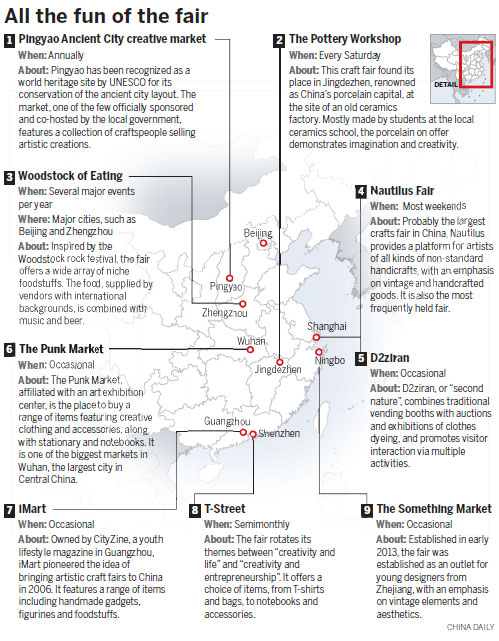
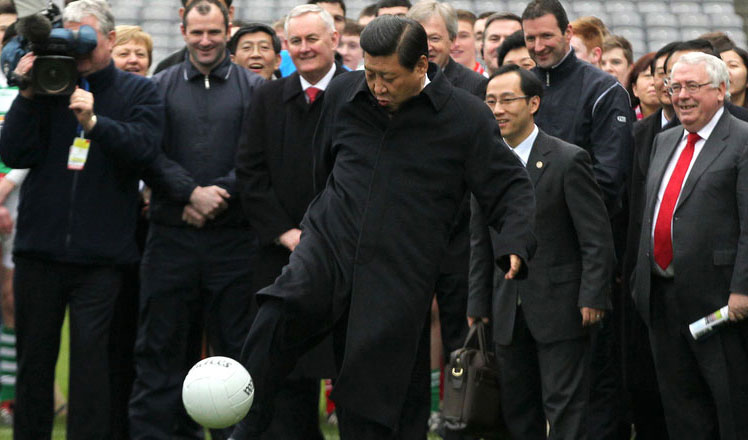
 Take a glimpse into soccer-related gifts of Xi
Take a glimpse into soccer-related gifts of Xi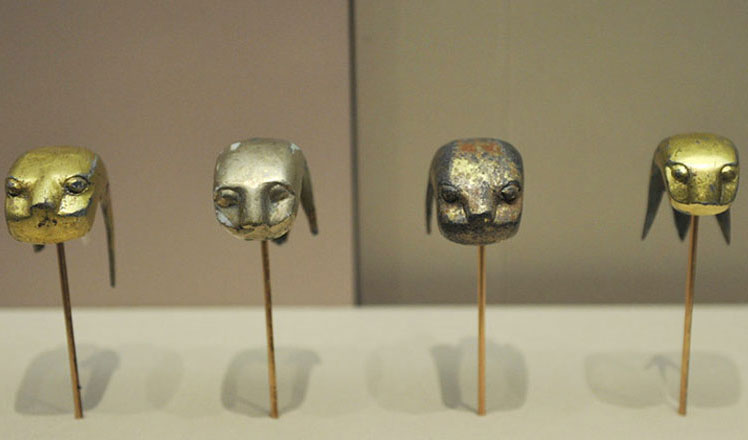
 Precious relics of debauched king on display in Jiangxi
Precious relics of debauched king on display in Jiangxi
 In pics: Britain's Kate visits the Netherlands
In pics: Britain's Kate visits the Netherlands
 Qizai, rare brown giant panda in China
Qizai, rare brown giant panda in China
 Everything you always want to know about Macao
Everything you always want to know about Macao
 World's top 10 most valuable unicorn companies
World's top 10 most valuable unicorn companies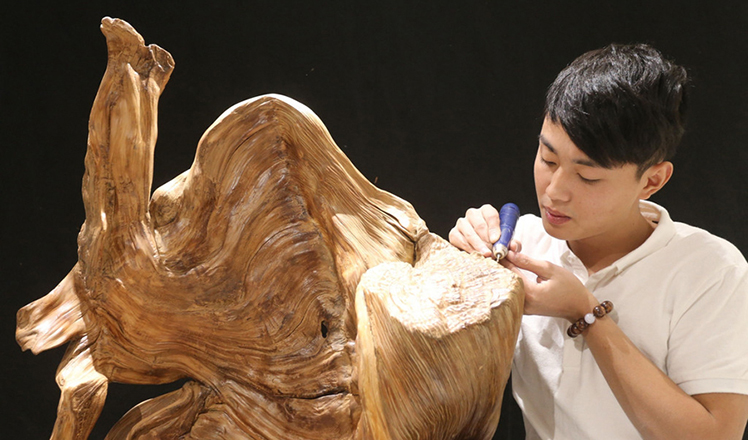
 Carver finds fame, money in wood sculptures
Carver finds fame, money in wood sculptures
 Missile destroyer to become local military-themed park
Missile destroyer to become local military-themed park
Most Viewed
Editor's Picks

|

|

|

|

|

|
Today's Top News
Trump outlines anti-terror plan, proposing extreme vetting for immigrants
Phelps puts spotlight on cupping
US launches airstrikes against IS targets in Libya's Sirte
Ministry slams US-Korean THAAD deployment
Two police officers shot at protest in Dallas
Abe's blame game reveals his policies failing to get results
Ending wildlife trafficking must be policy priority in Asia
Effects of supply-side reform take time to be seen
US Weekly

|

|
